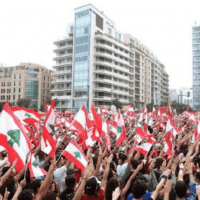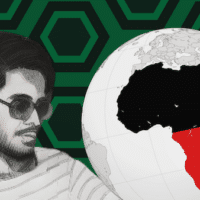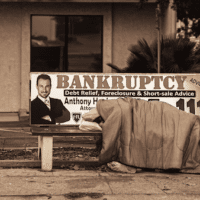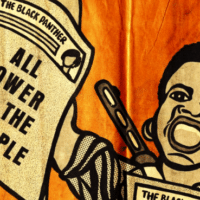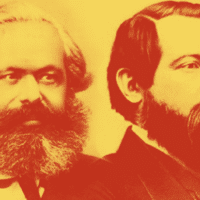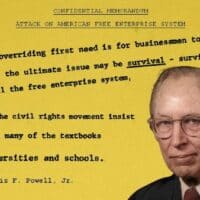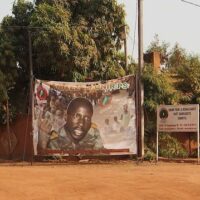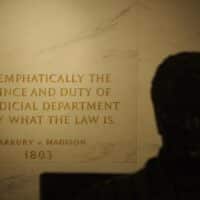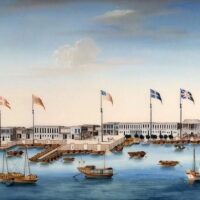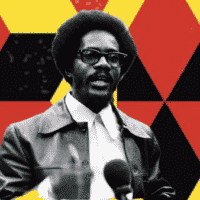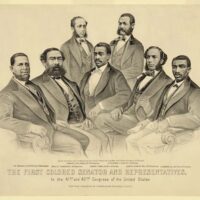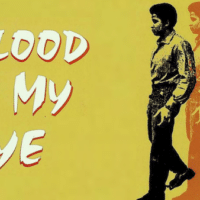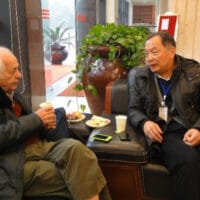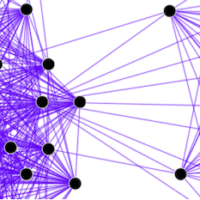-
Lebanon: A lesson in continuous and unconditional resistance
Like the people of Gaza after the January 17, 2025 ceasefire there, thousands of the 1.4 million Lebanese people displaced by Israeli bombings are streaming home in long lines to their villages, even though Israel reduced scores of towns to rubble.
-
Walter Rodney: “Marxism and African liberation”
One finds that in looking at Marxist theory, at its relevance to race, looking at the relevance of Marxist theory to national emancipation, we come up with a very important paradox.
-
Overproduction: The absurdity of suffering amidst surpluses
A popular coal-miner’s riddle from the 1930s summarizes one of capitalism’s most visible and absurd contradictions. After a daughter asks her father why their home is so cold, he tells her they don’t have any money to purchase coal.
-
The class struggle in every commodity: Use value and exchange value
Every year, Pew Research publishes a study on the U.S. population’s political priorities.
-
Capitalist contradictions and revolutionary struggle: An introduction
Hearing or reading about the “contradictions of capitalism” in an article or at a rally might be intimidating, like a foreign language or a term only a certain group can understand.
-
Capitalist urbanization, climate change, and the need for sponge cities
Under the capitalist model, urban planning lacks a holistic approach, leaving human well being and ecological needs as an afterthought, which will continue to have a degenerative effect on the environment and global climate.
-
The Marxist theory of the state: An introduction
Our understanding of the state lies at the heart of our struggle to create a new society and fundamentally eliminate the oppression, exploitation, war, and environmental destruction characteristic of capitalism.
-
“Karl Marx:” A biography by Engels
Karl Marx was born on May 5, 1818 in Trier, where he received a classical education. He studied jurisprudence at Bonn and later in Berlin, where, however, his preoccupation with philosophy soon turned him away from law.
-
The “Powell Memo” and the Supreme Court: A counteroffensive against the many
By the early 1970s, the global revolutionary tide of socialist and national liberation struggles was at its apex, and the tide was washing over the U.S., with expanding and increasingly militant social movements and political organizations.
-
Value, price, and inflation: Immediate and structural causes
Every working person is keenly aware that prices are up.
-
“Shelby County v. Holder:” How the Supreme Court attacked Black voting rights
In 2013, five unelected judges gutted the right to vote for tens of millions of African Americans and others. The Supreme Court’s ruling in Shelby v. Holder overturned a key provision of the Voting Rights Act of 1965 (VRA) that prevented voter suppression.
-
Thomas Sankara: “We didn’t import our revolution”
This is the first English translation of this interview and the opening installment in a Liberation School series of previously untranslated work by Thomas Sankara. This translation series is the result of a collaboration with ThomasSankara.net, an online platform dedicated to archiving work on and by the great African revolutionary.
-
Haunted by the ghost of “Marbury v. Madison:” Judicial review and abolishing the Supreme Court
In 2022, after a handful of unelected judges serving lifetime terms in the U.S. Supreme Court eviscerated the hard-won and overwhelmingly popular right to abortion, masses of people took to the streets to defend this democratic right to bodily autonomy.
-
Of, by, and for the elite: The class character of the U.S. Constitution
In history and civics classrooms all over the United States, students are taught from an early age to revere the “Founding Fathers” for drafting a document that is the bulwark of democracy and freedom—the U.S. Constitution.
-
Marx’s writings on Asia: A sober assessment
Throughout most of recorded history, Asia has been the wealthiest region in the world.
-
Walter Rodney: A people’s professor
Rodney’s most recent, posthumously-published text, The Russian Revolution: A View from the Third World, offers an important perspective on the time period in which it was written and the internal position of the author. Rodney’s family worked with Robin Kelley in taking Walter’s extensive lecture notes on the Russian revolutionary era and forming them into a complete manuscript.
-
Toward a third Reconstruction: Lessons from the past for a socialist future
Karl Marx wrote to Lincoln in 1864 that he was sure that the “American anti-slavery war” would initiate a “new era of ascendancy” for the working classes for the “rescue…and reconstruction of a social world.”
-
George Jackson’s “Blood in my eye:” A critical appraisal
Originally from Chicago, Ill, George L. Jackson grew up in California. In 1961, a young Jackson convicted of armed robbery for allegedly stealing $70 from a gas station. Outrageously, Jackson was sentenced to one year to life, despite assurances from his attorney of a favorable deal if he plead guilty.
-
“Ten crises: The political economy of China’s development,” by Wen Tiejun
Wen’s vision is of a China which would be increasingly self-reliant, delinking from the American dominated global capitalism and developing its own key technologies and productive capacities, while at the same time continuing to engage with other emerging economies which share a desire to be free of Western neo-imperial control.
-
The base-superstructure: a model for analysis and action
Although Marx himself only mentioned the “base” and “superstructure” in (by my count) two of his works, the base-superstructure “problem” remains a source of serious contention for Marxists, our sympathizers, and our critics.

